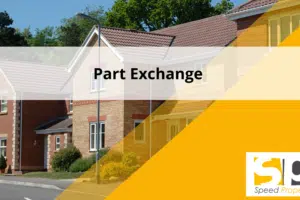Guide on: How Do I Sell My House Back to the Council
If you’re wondering ‘how do I sell my house back to the council,’ you’re seeking clarity and direction in navigating a process that’s not often discussed you are in the right place. Selling a house to the local council involves understanding council policies, assessing your home’s value, and executing the sale correctly. This guide is designed to lead you through each step, providing the essential information to make an informed decision and streamline the process of selling your property back to the council.
Takeaways
- Local councils may purchase private houses if there is a need to increase their housing stock, but budgetary constraints often make this an unlikely scenario for sellers, and policies on property acquisitions vary by local area.
- When considering selling your ex-council house back to the council, be aware of certain restrictions under the Right to Buy scheme, such as the requirement to offer the first right of refusal to the original landlord and possibly repaying part of the discount received.
- Alternatives to selling back to the council include using estate agents, property auctions, or selling to quick property buyers and housing associations, each with its respective advantages and considerations such as fees, speed of sale, and market value.

Exploring the Possibility of Selling Your Home to the Local Council
Is it possible to sell your council house back to the local council? The simple answer is yes. However, the likelihood of this happening is low due to the budget constraints and lack of funding faced by many local authorities. It’s important to note that councils are not obligated to buy back ex-council houses and may refuse assistance if they perceive financial imprudence on the part of the seller.
That said, if the local council decides to buy private houses, reasons may include a deficit in their housing stock or the desire to expand their portfolio of homes, catering to the needs of local portfolio owners.
Understanding Local Authority’s Property Acquisition Policies
Local authorities have different policies on property acquisitions due to variations in funding, spending, and local area needs. For instance, councils may look for properties that meet specific criteria such as location, size, type of property in demand, based on local housing needs, like a shortage of two-bed homes in a particular area. You can find information about your local council’s property acquisition policies on their official website, which generally includes strategies for housing and property purchases, or within their Housing Strategy document.
On this note, when considering selling your property to the council, it may be beneficial to prepare a case reflecting on how the sale of your house to the council meets the local council’s housing needs and acquisition requirements. This could increase your chances of getting a positive response from the council.
Initiating Contact with Your Local Council

Don’t hesitate to ask whether they’re interested in purchasing your property and what price they might be willing to pay. Remember, communication is key in this process. Being proactive and engaging in a dialogue with your local council could open doors to new opportunities.
Assessing the Market Value of Your Ex-Council House
After establishing contact with the council, evaluating the market value of your ex-council house is the subsequent step. To do this, use tools like Zoopla’s price estimation tool, which factors in local comparable sales and significant increases observed in areas with high rental demand. The reputation of the local area can also significantly influence the desirability and consequently the council house worth of ex-council properties.
Remember, the market value of an ex-council house may be affected by specific factors, such as build quality and the kind of materials used during construction. Moreover, the potential stigma associated with council estates could potentially impact the resale value of ex-council houses, making their market value lower compared to private properties.
Navigating the Right to Buy Scheme for Selling Back

However, if the original landlord, such as the council or housing association, does not agree to buy back the ex council property within 8 weeks of the offer, you are free to sell it to any other buyer. Lastly, the valuation for selling an ex-council house back to the original landlord must reflect the full market price, and if the parties do not agree on the price, a district valuer will determine the property’s market value at no cost to the seller.
Alternatives to Selling Your House Directly to the Council
If selling back to the council doesn’t seem viable, several other alternatives are worth considering. These include:
- Quick property buyers
- Property auctions
- Estate agents
- Selling independently
Each of these options has its own pros and cons that you need to consider based on your specific situation.
Considering Housing Associations as Potential Buyers
Housing associations could be potential buyers for your property. They typically prefer to purchase:
- 2 or 3-bedroom terraced or semi-detached houses with good access
- Bungalows in locations where there is a demand from tenants and a shortage of housing
- Larger family houses or houses suitable for disabled tenants, which aligns with their mission to cater to a diverse range of housing needs.
Housing associations generally pay market value for properties, taking into account any adjustments needed if the property requires renovation or repairs. Properties offered with vacant possession are generally preferred by housing associations, as it enables them to let out the properties without delays. So, if your property aligns with the needs of a local housing association, it could be a viable alternative to selling back to the council.
The Role of Estate Agents in Selling Ex-Council Homes

While employing an estate agent incurs commission fees, selling a house back to the council does not entail these additional costs. Thus, before deciding on this route, weigh the pros and cons carefully and consider whether the potential higher sale price outweighs the costs involved.
Preparing Your Property for Sale to the Council or Other Buyers
Before listing your property on the market, preparing it for sale is critical. Here are some steps to take:
- Enhance kerb appeal with clean windows and a fresh door mat to create a positive first impression.
- Declutter the space to make it appear more spacious and allow buyers to visualise their own belongings in the space.
- Use neutral colour and furnishings to create a welcoming and appealing atmosphere.
- Consider any unique characteristics of the property, such as non-standard construction materials, which may affect its market value and insurance costs.
Remember, the property’s value is affected by its condition and any unique characteristics, so it’s important to take these steps to maximise its appeal to potential buyers.
In addition to cleaning and decluttering, fixing minor issues and showcasing well-maintained facilities can also boost the perceived value of the property. Improving the property’s external appearance with actions like applying new paint, fixing broken elements, and organizing the garden can also influence the perceived value and result in a higher offer from the council or other buyers.
Financial Considerations When Selling to the Council
There are unique financial considerations to keep in mind when selling your house back to the council. For instance, you may be liable for Capital Gains Tax on the profits from selling your property, but there are some exemptions, such as the property being your only and main residence. Furthermore, selling a house back to the council may result in a reduced sale price, especially if the property is sold within a certain period after purchase due to conditions such as the refund of Right to Buy discounts.
On the bright side, by choosing to sell a property back to the council, you may avoid estate agent or auctioneer fees typically associated with the property selling process. However, be aware that local councils’ ability to offer full market value for properties can be limited due to budget constraints and varying property acquisition policies.
Quick Sale Options: Cash Buyers and Property Buying Companies
For those seeking a speedy sale, private cash buyers and property buying companies could be an excellent choice. These buyers can finalise the purchase of properties, including ex-council houses, often within weeks, providing a faster alternative to traditional property sales. Additionally, these speedy sales eliminate the need for property repairs or improvements, and some property buying companies may offer contributions towards legal fees for the sellers.
However, there’s a trade-off. Property buying companies typically offer 80-90% of the home’s value, and sellers must conduct due diligence to avoid additional fees and work with reputable companies. Plus, after the sale, sellers have no control over the subsequential buyers and, despite the reduced risk, a cash sale can still fail from aspects like buyers’ whims or survey issues.
The Impact of Rental Demand on Selling Your Council House
The council’s interest in buying back properties could also be influenced by rental demand. Local councils in the UK may be inclined to purchase housing due to low stock, impacting their eagerness for residents to rent rather than sell back council houses. In light of this, homeowners may consider remortgaging their property on a buy-to-let basis if it is financially feasible as an alternative to selling.
However, letting out a property comes with its own set of risks and hassles, including additional financial exposure which should be weighed against the option of selling. Therefore, understanding the rental demand in your area can help you make an informed decision about selling your council house.
The Process of Exchanging Contracts with the Council

- Property searches are complete
- Written mortgage offers are received
- Funds are ready for the deposit
- Review the contract thoroughly and clarify any terms or conditions not understood with your solicitor
- The seller may require a holding or contract deposit, typically between £500 to £1,000, ahead of the exchange
- Organise buildings insurance to become effective from the date of contract exchange.
The process of exchanging contracts involves:
- Solicitors or conveyancers reading out the contracts via a recorded phone call to ensure their accuracy before mailing them to each other.
- Agreeing upon a completion date for the sale with the council.
- Maintaining regular communication to avoid delays in the paperwork processing for contract exchange.
Once contracts are exchanged, the buyer, in this case, the council, is legally bound to purchase, and steps like notifying the freeholder and land registry registration must begin. The timeframe between the exchange and completion may vary, but it is typically about a week. So, make sure you’re ready for this step before you proceed.
What Happens After Selling Your Council House Back
Once your council house is sold, there are several considerations to keep at the forefront. For starters, you must be aware of the obligation to repay any Right to Buy discount received if you sell the property back to the council within a pre-defined timeframe, such as five years from purchase. Also, you’ll need to find new accommodation following the sale, as you will generally not be able to remain in the council house which will be reintegrated into the council’s housing stock.
Post-sale, it’s crucial to consult with legal and financial advisors to ensure all obligations, such as clearing any outstanding debts secured against the property, have been met. Remember, selling your council house back is not just about the sale itself but also about meeting your obligations after the sale.
Summary
In conclusion, selling your council house back to the local council is a feasible option, albeit not without challenges. It’s important to understand the local authority’s property acquisition policies, assess the market value of your property, and navigate the Right to Buy scheme. Be prepared to explore alternatives, prepare your property for sale, and consider the financial implications. Quick sale options, understanding rental demand, and the process of exchanging contracts are also crucial aspects. Lastly, don’t forget to meet your post-sale obligations. Selling a council house back is a journey, and with the right information, you can navigate it successfully.
Frequently Asked Questions
How do I sell my house back to the council after?
You can sell your former council house back to the council by contacting them directly and inquiring about their interest in making an offer for the property. Consider asking them what price they might be willing to pay.
Can you sell your property and rent it back?
Yes, you can sell your property and rent it back through a sale and rent back scheme. This type of scheme involves selling the property to an investor and then renting it back from them, often at a lower price than the market value.
How can I assess the market value of my ex-council house?
You can assess the market value of your ex-council house by using tools like Zoopla’s price estimation tool, which considers local comparable sales and rental demand increases. This can give you a good estimate of the value. Alternativly why not get in contact with us for a free estimate.
What are the restrictions under the Right to Buy scheme when selling back?
When selling back a council property under the Right to Buy scheme, homeowners may need to repay part or all of the initial discount if they do so within the first few years of purchasing. Keep this restriction in mind when considering selling back your property under this scheme.








